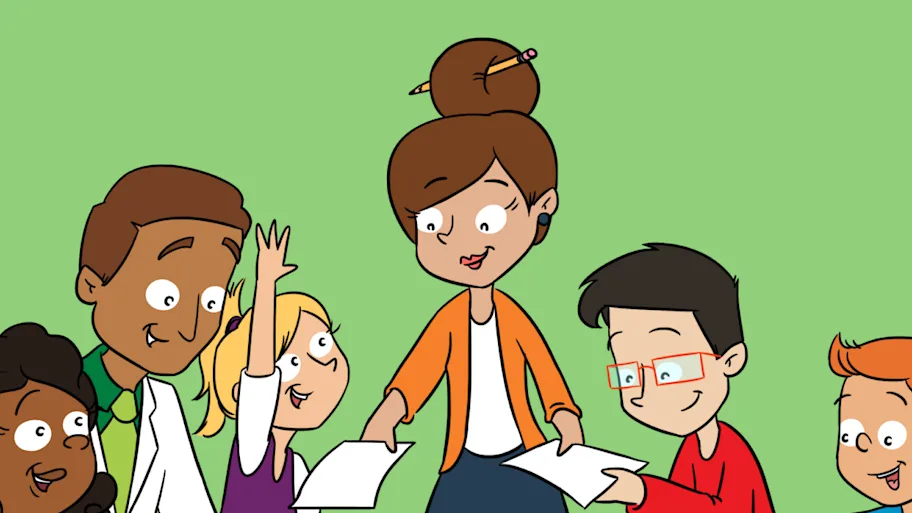
- Science News
- Climate action
- How a city walk may improve your mood: Here are five Frontiers articles you won’t want to miss
How a city walk may improve your mood: Here are five Frontiers articles you won’t want to miss
By Deborah Pirchner, Frontiers science writer

Image: Shutterstock.com
At Frontiers, we bring some of the world’s best research to a global audience. But with tens of thousands of articles published each year, it’s impossible to cover all of them. Here are just five amazing papers you may have missed.
Walking in the city might be just as good for our mood as walking in nature
Time spent in urban environments is associated with depletion of cognitive resources and an increasing prevalence of mental illness. Few studies, however, have measured working memory capacity. Now, writing in Frontiers in Psychology, US researchers have compared memory performance and self-reported mood before and after a 30-minute walk in a natural or urban environment.
The scientists assigned participants to either a nature or an urban condition and measured differences in self-reported affect and OPSAN, a complex measure of working memory capacity, before and after going on a walk in the respective environment. Their results showed that regardless of the setting, walkers exhibited an increase in positive affect and a decrease in negative affect, suggesting that going outside for a walk can boost mood regardless of environment type. They found, however, no significant changes in working memory capacity scores before and after the walk for either environment type.
Article link: https://www.frontiersin.org/articles/10.3389/fpsyg.2023.1039334/full
Poo of the world’s heaviest parrot might help save it from extinction
Today, threatened species often live in different habitats than they used to, meaning their ecological niche, including full dietary breadth, cannot be fully captured by contemporary data alone. It is, however, vital to understand diets and interspecific interactions of endangered animals, since this information is often required for supporting decision making in conservation management.
To explore conservation possibilities for the critically endangered kākāpō, the world’s heaviest parrot which disappeared from its natural range in New Zealand several hundred years ago, researchers from New Zealand and Australia have published an article in Frontiers in Ecology and Evolution in which they analyzed kākāpō poo (scats) and fossilized feces (coprolite). The scientists found that kākāpō historically exploited dozens more plant families than they do at present. They also demonstrated the potential value of coprolite analysis in conservation biology.
Article link: https://www.frontiersin.org/articles/10.3389/fevo.2023.1058130/full
Can avatars sell products just as well as humans?
Advances in motion tracking and 3D graphic software open doors for communication through avatars. How effectively avatars, as opposed to humans, can convince viewers to make purchases has been on the minds of researchers. Writing in Frontiers in Computer Science, a team from Japan has investigated the characteristics of persuasiveness for human and virtual influencers.
The scientist recruited participants to watch product introduction videos on YouTube, presented by either humans or avatars. Except for the appearance of the presenter, the videos were similar. Before and after watching the videos, the participants completed a questionnaire about their willingness to purchase and the presenter’s persuasiveness.
The researchers found that although human influencers were generally more persuasive, virtual YouTubers were more convincing in certain product domains such as tapioca drinks. The degree of persuasiveness was also linked to the presenter’s likability, trustworthiness, and familiarity to the audience as well as the entertainment level and quality of the video.
Article link: https://www.frontiersin.org/articles/10.3389/fcomp.2023.1043342/full
Adapting to climate change will keep maple syrup on store shelves
Climate change related impacts on agricultural systems influence producer decision-making and livelihoods. Researchers from the US and Canada have published an article in Frontiers in Forests and Global Change in which they surveyed maple producers on climate change, its impact on the maple system, and potential adaptions necessary to remedy declining yield.
The researchers found that 89% of maple producers in the US had experienced negative climate related impacts on maple syrup production. To mitigate these, the majority of planters have adapted harvesting practices and strategies, including the planting of more diverse sap species. Another finding was that most non-tribal producers have implemented technological solutions whereas the tribally affiliated producers have focused on implementation of long-term ecological management of forests. The scientists concluded with emphasizing the importance of cooperation and diversification at every level of the maple system to guarantee its long-term resilience.
Article link: https://www.frontiersin.org/articles/10.3389/ffgc.2023.1092218/full
Human noise disturbs sea-living invertebrates
Humans are inherently noisy. A big concern in the conservation of marine biodiversity is the noise produced by human operations at sea and from land. Research on how anthropogenic noise affects marine life and its balance has so far mainly focused on marine mammals and fish. Recently, however, there has been more work on marine invertebrates, which make up the largest amount of biomass in the ocean. Now, writing in Frontiers in Marine Science, an international team of researchers has reviewed current scientific knowledge on invertebrate bioacoustics, as well as on how marine invertebrates are affected by anthropogenic noise.
The scientists concluded that human noise affects marine invertebrates at different life stages, populations, and ecosystem levels and that it is detrimental to these species and the ecosystems they inhabit. They also pointed to the need for more research and interdisciplinary expertise.
Article link:https://www.frontiersin.org/articles/10.3389/fmars.2023.1129057/full
REPUBLISHING GUIDELINES: Open access and sharing research is part of Frontiers’ mission. Unless otherwise noted, you can republish articles posted in the Frontiers news site — as long as you include a link back to the original research. Selling the articles is not allowed.






